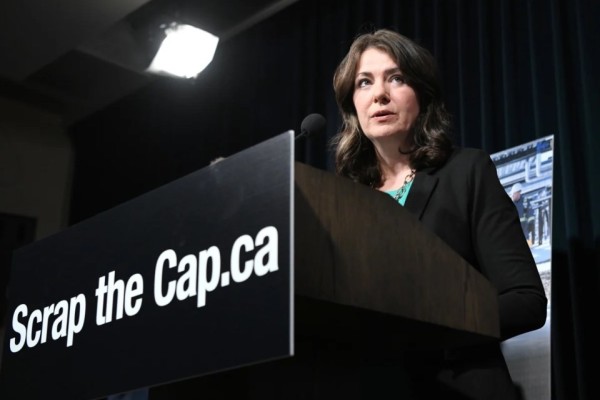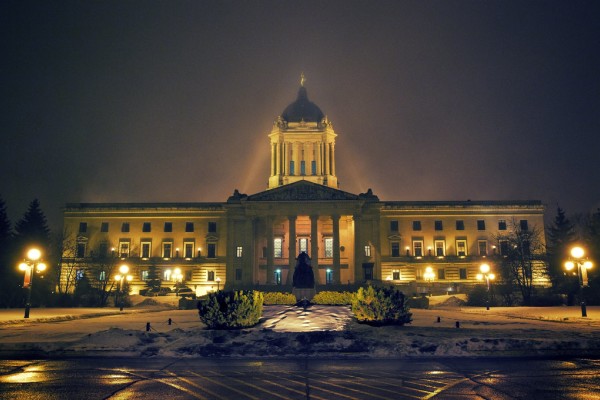Doug Ford’s trashing of the Greenbelt
The Ford government is fixated on immediate returns with scant regard for longer-term consequences

Changes to Ontario’s Greenbelt Act are in the works that would remove 7,400 acres of protected land and hand them over to developers. Photo courtesy Greenbelt.ca.
In Toronto, even though hundreds of thousands of people can barely pay their rent and homeless shelters are overflowing, it is still not really accurate to speak of a housing shortage. The skyline is dominated by evidence of a frenzied drive to create an oversupply of upscale homes, leaving tens of thousands of condo units unoccupied in the process. It has been suggested that there is a condo vacancy rate of 5.6 percent, which represents “at least two years’ worth of supply sitting empty” and this is primarily because of parasitic speculation.
The housing crisis, then, is really more a question of what housing is being built, how it is being allocated and who can afford to live in it. Today’s major housing development will be driven by developers and political oversight will be reduced to negotiating a minority of ‘affordable’ units that low-income people can’t actually afford. Should a few more square yards of park space be obtained, the politicians, including the self-styled progressives, will declare it a major victory for social justice. The very idea of social housing has become a matter for nostalgic recollection.
Developers rule
In this context, it is hardly surprising that the current Doug Ford government in Ontario views a profit-driven approach to the creation of housing as the only possible way to proceed. This is confirmed with stark clarity in the More Homes Built Faster Act, or Bill 23, that the Ford Tories are inflicting on us. Municipal Affairs and Housing Minister Steve Clark presents the bill as a noble effort to find “bold solutions” to a “severe housing crisis” and to open the way to building 1.5 million homes over the next 10 years. He suggests that this initiative is vital “If we are truly going to build affordable housing in this province.”
In reality, Bill 23 represents a crude and disastrous application of trickle down theory to housing provision. It offers a free ride to developers, as an incentive to ply their trade. It allows for “freezing, reducing and exempting fees developers pay to build affordable housing, non-profit housing and inclusionary zoning units—meaning affordable housing in new developments—as well as some rental units.” These fees currently go to municipalities to cover the costs of infrastructure and community services.
The Association of Municipalities of Ontario (AMO) suggests that this measure could mean a loss of $5 billion for municipalities, which would have to be compensated for by property tax hikes or cuts to services. At the same time, there is actually nothing in the legislation that ensures greater affordability of housing. Indeed, the bill “would constrain municipal efforts to require affordable housing in new developments and puts at risk rental replacement programs, which ensure tenants have access to affordable units when apartment buildings are redeveloped.”
A spokesperson for Ontario for All makes the telling point that, “By setting the definition of affordability for home ownership at 80 percent of the market rate, units that would have sold for a million dollars are now considered affordable and exempted from development charges if they sell for $800,000. He added: “Eight hundred thousand dollar homes are not affordable homes.”
Environmental Defence criticizes Bill 23 for undermining the role of conservation authorities in ensuring “that sprawl doesn’t destroy the ecological function of the habitat and water bodies they protect.” The organization points out that the bill strips these authorities of the power to “protect anything beyond managing floodwaters and erosion.” While the profits of developers may be boosted by gaining access to such vulnerable land, this promotion of “catastrophic rural sprawl” is unnecessary because “Ontario has more than enough room in existing neighbourhoods and lands already designated for development than it will need for housing for many decades.”
Amplifying the destructive impact of Bill 23, changes to the Greenbelt Act are in the works that would remove 7,400 acres of protected land and hand them over to the developers. The Ford Tories laughably claim that, having obliterated these rural areas, they will replace them with other land that they promise not to build upon. This would undermine the very concept of a greenbelt around urban space, “creating an open season on farmland for land speculators.”
Dirty deals
If this scorched earth approach to housing creation were unfolding without a whiff of improper dealings and undue influence, it just wouldn’t be a Doug Ford initiative. But since this is Ford we’re talking about, there has already been the predictable headline in the Globe and Mail: “Developers who bought Ontario Greenbelt land linked to Ford government.”
The accompanying article goes on to reveal that “At least four developers who bought the properties the government is now proposing to remove from the Greenbelt have either donated to the PC Party, hired conservative lobbyists, or both.”
Ford and his housing minister have, of course, denied that they tipped off developers as to their intentions regarding the assault on the Greenbelt. However, Green Party leader Mike Schreiner has asked the integrity commissioner to conduct an investigation to determine if “Clark or Ford broke ethics rules around making a public policy decision to further someone’s private interests.”
“It looks to be a pretty shady deal,” Schreiner said in an interview. “Of the 15 parcels of the Greenbelt that’s being opened for development eight of them, over half of them, have been purchased since Doug Ford was elected premier. […] One developer took out a $100,000,000 loan at 21 percent interest. Who does that for land you can’t develop? Something doesn’t look right here. It doesn’t pass the smell test.” It remains to be seen what will emerge here but, whether there were any improprieties or not, there is no doubt as to the cozy relationship between the political agenda of the Ford government and the profit thirst of the developers.
A very significant and determined resistance to Bill 23 has emerged in Ontario. A working alliance of groups opposed to the measure has been forged, which organized a series of rallies across the province on December 3. It is abundantly clear from the breadth of this movement that opposition to the passage of a bill is taking shape and that a sustained fight against the direction set by Ford’s legislation has been set in motion.
The Tory regime in Ontario is very much a sign of the times, and Doug Ford is the personification of its political profile. Earlier conservative notions of relative compromise and of the need to restrain, to a limited degree, the worst instincts of capitalists have been set aside. There is now only reckless indifference and a no-holds barred “open for business” ideology fixated on immediate returns with scant regard for longer-term consequences.
This is the warped logic that has given rise to the disastrous directions set out in Bill 23. It guarantees that the need for truly affordable housing will be ignored. It abandons any notion of effectively utilizing existing urban space. It ensures that the provision of housing will proceed along lines that maximize sprawl and environmental degradation. It sacrifices any possibility of a rational planning process to the profit needs and greed of the developers.
Ford has passed his bill into law and now the whole noxious agenda it entails will be executed. The resistance that has emerged must be sustained and built upon because nothing less than the vital social need of housing and the creation of just and sustainable communities are at stake.
John Clarke is a writer and retired organizer for the Ontario Coalition Against Poverty (OCAP). Follow his tweets at @JohnOCAP and blog at johnclarkeblog.com.










